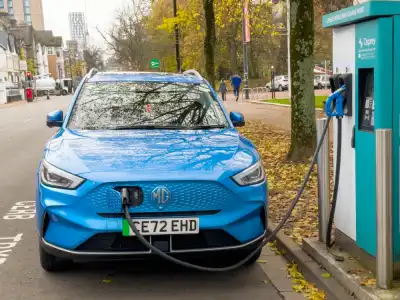
UK drivers could soon see a major shift in how they pay for road use, as a leading think tank urges the government to introduce a mileage-based car tax.
Chancellor Rachel Reeves has been encouraged to consider a pay-per-mile system in her Autumn Budget this November. While the government says no such plan is currently in place, the proposal could lead to higher costs for drivers, especially electric vehicle (EV) owners.
The independent think tank, The Resolution Foundation, suggests replacing the current fuel duty system with a tax based on distance travelled - and for EVs, the vehicle’s weight.
How would it work?
As electric cars become more common, the government is looking for ways to replace falling fuel duty revenues, which currently fund road maintenance. Petrol and diesel drivers pay roughly 6p per mile (plus VAT) in fuel duty, while EVs pay nothing. This creates a growing funding gap.
The Resolution Foundation proposes charging EV drivers per mile, depending on their car’s weight to reflect the wear and tear heavier vehicles cause. Under this system:
- Small EVs (~1,000kg) would pay 3p per mile
- Medium EVs (~1,800kg) would pay 6p per mile
- Large EVs (~2,800kg) would pay 9p per mile
“Weight is a fair basis for a tax because it correlates with road damage, noise, tyre and brake pollution, safety risks, and overall vehicle value,” the think tank stated in its Call of Duties report.
What would it mean for drivers?
Petrol car drivers wouldn’t see immediate changes. For EV owners, costs could rise - but EVs would still remain cheaper to run. Combined electricity and tax costs could average around 5p per mile, compared with about 16p per mile for petrol cars.
The system is designed to be fair: smaller, lighter EVs would stay affordable, while owners of heavier SUVs or premium electric models could face higher charges.
Will it happen?
The government insists there are no current plans for road pricing.
“We are committed to supporting our automotive sector as we transition to electric vehicles to meet our legally binding climate targets,” said a HM Treasury spokesperson.
However, as fuel duty revenues decline, experts warn the Treasury will eventually need a replacement. Mileage-based charging, tied to vehicle weight, is a leading option under consideration.
Drivers don’t need to worry about immediate changes, but the conversation has begun. If adopted in the future, EVs could lose their tax-free advantage, and heavier models could become notably more expensive to run.




